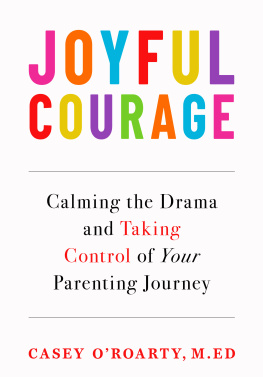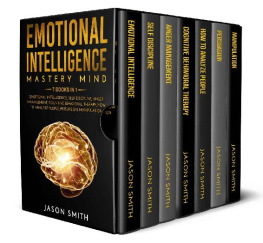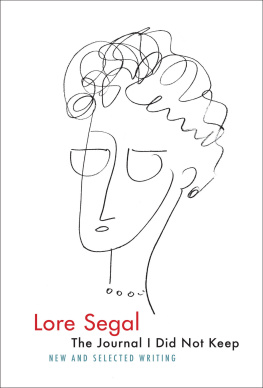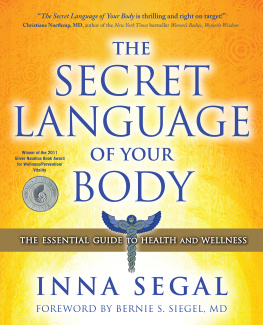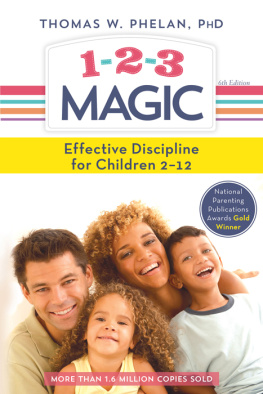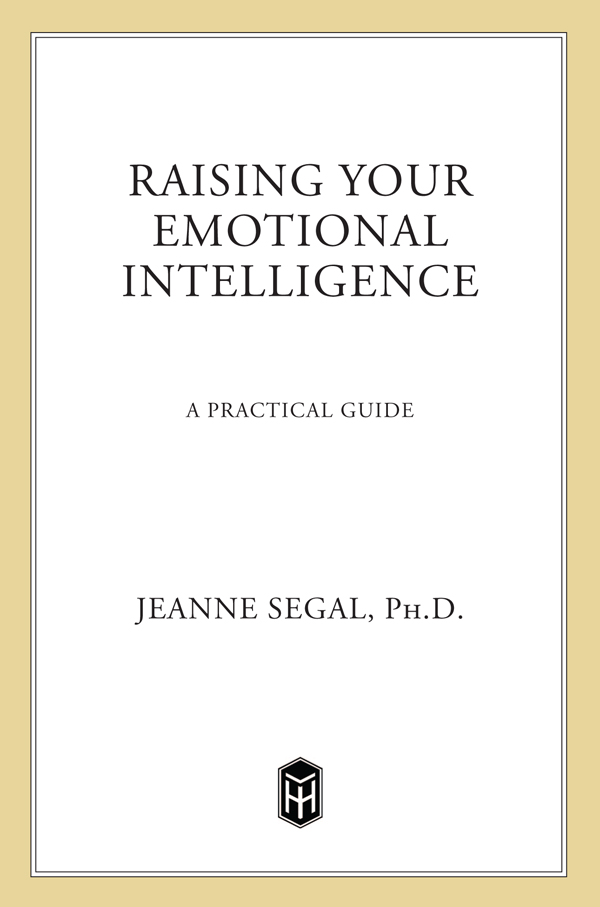Contents
Guide

The author and publisher have provided this e-book to you for your personal use only. You may not make this e-book publicly available in any way. Copyright infringement is against the law. If you believe the copy of this e-book you are reading infringes on the authors copyright, please notify the publisher at: us.macmillanusa.com/piracy.
To my sweet, kind, loving, beautiful,
and greatly talented daughter
Morgan Leslie, who in losing her passion
for life lost her desire to live it
What comes out of us is always the work of many people. Certainly this is true of Raising Your Emotional Intelligence. The collaboration with my editor, Christine Benton, has been a labor of love. Her skill, wit, and heart guided and uplifted me time and again and helped craft a complex book aimed at addressing many needs. Thanks without measure to my wonderful husband, Robert, whose love, support, patience, and technical assistance I could not have done without. Thanks also to Jody Rein, my agent, for her brilliant guidance, and to David Sobel, my editor at Holt, for his critical input.
Emotions matter. According to a mounting body of evidence, feeling is the most powerful resource we have. Emotions are lifelines to self-awareness and self-preservation that deeply connect us to ourselves and others, to nature and the cosmos. Emotions inform us about things that are of utmost importance to usthe people, values, activities, and needs that lend us motivation, zeal, self-control, and persistence. Emotional awareness and know-how enable us to recover our lives and our health, preserve our families, build loving and lasting relationships, and succeed in our work.
Since the early nineties, funds have been pouring out of research coffers for study of emotions role in our lives. Compelling support for the importance of feeling in intelligence and well-being has started to appear in popular books and other media outlets. So far, though, we have not been offered a way to make emotion one of our tools for learning about ourselves and navigating a fulfilling course through our world.
Raising Your Emotional Intelligence is intended to fill that gap. Founded in my work and study over the last thirty years, it presents a practical method for returning our ability to feel to its rightful place alongside our ability to think. It is based on my belief that when we let ourselves feel our emotions fully and physically, as were designed to do, we tap parts of the brain that have been lying dormant and gain the potential for keeping our intelligence growing for life.
My interest in the power of emotion began during the 1960s, when I was a young psychologist sitting on the board of the Association for Humanistic Psychology, coordinating its national conferences. Inspired by the feeling-centered theories, philosophies, and techniques of pioneers like Abraham Maslow, Rollo May, and Carl Rodgers, I eventually became one of the first practitioners in the country to specialize in holistic health. During the 1970s I was part of an early research effort by the Center for the Healing Arts involving cancer patients at UCLA that asked whether emotions played a role in the healing process. The resounding yes produced by our studies cemented my commitment to the exploration of emotion.
The long-term survivors I was studying had strong, clear ties to all their emotions. They knew what they felt and were not fearful or intimidated by strong emotionstheirs or other peoples. Most important, this connection to their feelings informed, motivated, and activated their lives, drawing them toward others in spite of their own pain and suffering. Emotions also informed and guided the spiritual relationships that many survivors spoke of as an essential part of their healing.
Moved by these survivors, I threw myself into exploring the emotional resources that had contributed to their recovery. When I oversaw the investigations of a half-dozen graduate students into the characteristics of long-term survival, three traits surfaced: the ability to know what you feel; the ability to accept or be comfortable with all the feelings you identify, no matter their intensity; and the ability to act on this emotional information. From this point on, the question that became the passionate focus of my own work was: Since most of us dont have these skills, how do we develop them?
The answer, I was convinced, lay in the body. As I had grown more interested in the subject of emotions, the field of psychology had grown less interested. Emotion had become the bad guy of mental health and was denigrated, blunted, and generally ignored as a source of health and healing. Not only was feeling-centered therapy eventually replaced by cognitive therapies, but medication seemed to be the new focus of all health care. Medical treatments were directed at numbing physical pain, and psychological treatments were aimed at numbing emotional activity. To reclaim emotion as the powerful healing resource it is, it seemed to me we had to reclaim the ability to feel our emotions in the body.
So, for the next fifteen years, I explored and developed new possibilities for expanding emotional awareness through physical sensation and improving emotional management through my work in physicians offices, clinics, hospitals, hospices, private practice, training programs, workshops, seminars, and through my writings. When I began to take a leadership role in a variety of nonprofit community-based institutions, it became clear that the emotional skills I had developed for use in the health field were also invaluable in all social and work settings. With the tragic death of my middle child I personally experienced how awareness of ourselves and others at an emotional level profoundly influences personal and social outcomes.
These observations and experiences inspired me to add my voice to the growing chorus of those who are again interested in exploring our emotional world. Raising Your Emotional Intelligence gives me an opportunity to share a life-sustaining and empowering gift that gives life its zest, hope, and meaning. I hope you will use this book to make emotional intelligence a permanent part of your life.
Why doesnt anybody like Lucy Leroy? As shell be quick to tell you, shes smart, conscientious, well organized, and industrious. She cares about other people; she really does. But time after time, when the invitations go out, her name is left off the list; she hears chitchat of lunch plans in the making at the office but eats alone at her desk.
And whatever happened to Tom OBrian? Tom was the kid in the neighborhood all the moms enviedso smart he got sent to a school for gifted kids; so creative his inventions won science prizes usually reserved for much older children. He was awarded a scholarship to some Ivy League school, but lately a rumors been circulating that he dropped out and is repairing toasters out of his apartment. Could it be possible?
How about you? Hows your life going? Have you achieved all you expected you would? Are you content with the number and depth of your friendships? Is your marriage the fountain of intimacy and support you dreamed it would be? Have you been promoted with the alacrity you deserve at work? Do you feel generally at ease in the worldor a little out of synch, for reasons you cant quite discern?
If you feel out of synch; if you answered no to many of the questions above, I can diagnose your problem in a snap. Youre normal. You, Lucy, Tomand Dick and Harry and Jane and Joanare average, red-blooded, thinking Americans, trained in family, school, and work to value the intellect and devalue the emotions, to squelch passion and to use your head to figure out what your body is feeling, to be, in short, smartnot emotional.


